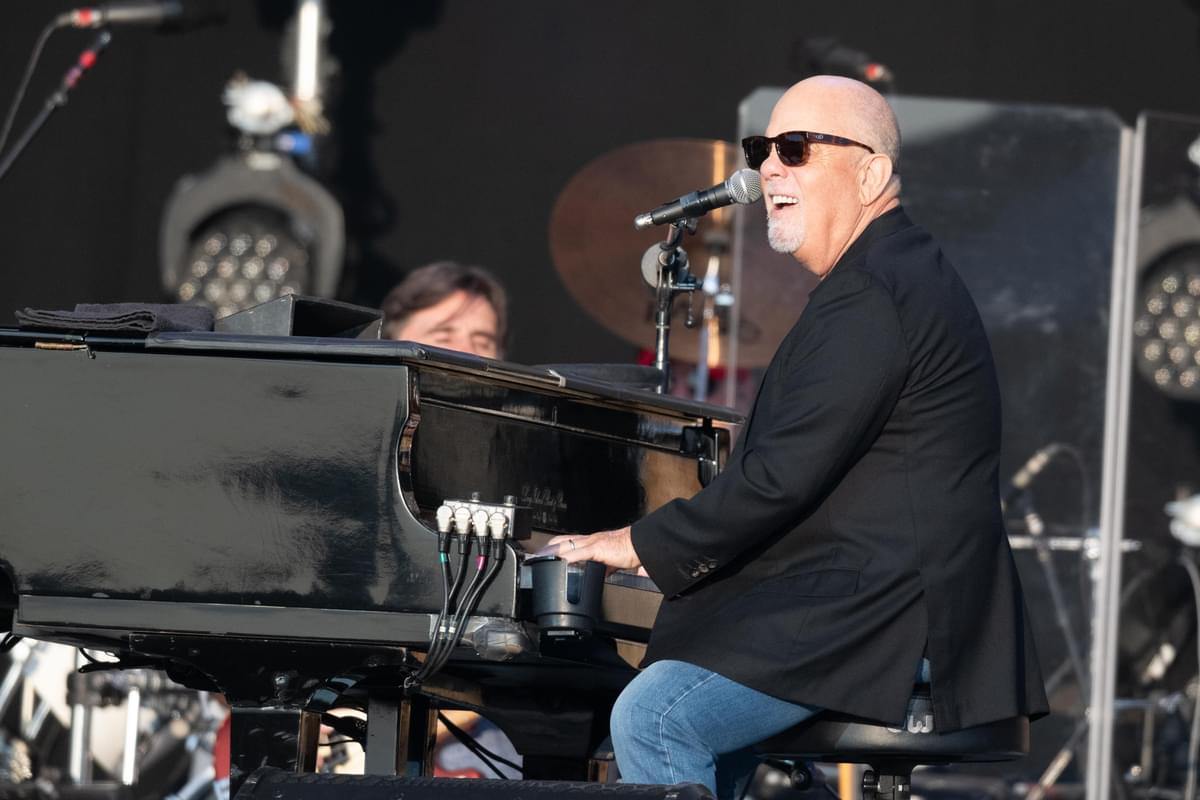
Showman supremo and same old someone that I knew
The way Billy Joel transports us to the past seems integral to his music’s ability to heal us, writes Grace Easton.
“I’ve got some good news and I’ve got some bad news” Billy Joel tells us as he settles at the piano for his show in London's Hyde Park. “The bad news is we don’t have anything new to play. The good news is you don’t have to hear anything new.”
It’s been over twenty years since Billy Joel released a new studio album. But if he had more songs to sing what would he even do with them? There are already too many hits to play in a two and a half hour set. Most mega-stars combat age and waning relevancy with frantic bids for artistic reinvention – but Billy Joel’s stance that he’s said more than enough only amplifies the power of his music.
I heard Billy Joel for the first time as a kid on hot-summer car journeys. My Mum had to make two trips to HMV to get the CD because Piano Man: The Very Best of Billy Joel was pretty much always sold out. River of Dreams was released the year before I was born, so even the first time I listened to these songs they already belonged to a past I have no memory of. Still, my brother and I would read the album notes on the back seat and memorise all the lyrics.
The stories Billy Joel tells us are pitifully human. His melodic ballads have a romantic naivety to them. The lyrics are laden with the ephemera of late twentieth-century americana; paintings from Sears, waterbeds, Cadillac-ack-ack-ack-acks. Still, he manages to paint a picture so universal that a crowd of sweaty Brits can sing the whole song with him verbatim.
Blockbuster shows at their very best create a sense of community out of a cohort of drunken sun-stroked strangers. The man next to me glistens like a ham, he knows all the words to “Scenes from an Italian Restaurant”. We belt them together at the top of our lungs and smile at each other in wordless recognition. The theatrical verbose quality of Billy Joel’s songwriting makes his music exceptionally fun to sing.
Joel balances the tenderness of his music with a street-wise deadpan machismo. He mocks his own piano’s revolve; “I’ve gotta be out here on a little turntable like a frickin record”. When he hits the high note of “Innocent Man” he gives his brow an exaggerated swipe of relief.
He pivots between Mick Jagger impersonations with a burst of pouting “Start Me Up”, and later accompanies bandmate Mike Delguidice to Puccini’s “Nessun Dorma” with delicate classical precision; the sheer range of the guy should be enough to silence the haters.
Despite all the technical skill and commercial success, Billy Joel has been subjected to decades of commentative sniping. Critics lambast him as anodyne, sappy, superficial, derivative, mawkish, fraudulently rebellious, mock-rock.
I do wonder what makes this particular brand of self-satisfied hack tick. Why does it give writers pleasure to put the kibosh on a career that is so objectively successful? Have they ever abandoned their intellectual superiority long enough to take sheer unbridled pleasure in something? Do they not watch reruns of Friends? Do they not like dogs? Have they never done the Macarena? Are they living on a cultural diet of kettle chips, Goethe and back issues of the New Yorker? It seems they’ve missed the point of what pop music is for.
Billy Joel, for me at least, has always been a definitive source of comfort. No matter how avant-garde your taste level, the pits of human experience often demand music of unbearable sincerity, nostalgia and sentiment. Billy Joel is here to tell you that life isn’t so scary, that actually, you’re doing fine.
Through his music we get to be the people we are too embarrassed to be in real life, a little too earnest, a little too wistful, a little too heartfelt. Critically, this style is unfashionable. There’s no irony in Billy Joel’s back catalogue. His vocals are articulated and sincere. While other pop stars have spent the summer writhing around dry humping camera lenses on stage, what a relief it is to simply listen to a man at a piano offering a little solace.

When at last the harmonica arrives at his lips the audience loses it. As the piano man goes full piano man my Mum and I shed silent tears. Billy Joel plays us a memory and for a while we get to inhabit the past with him; those hot-summer car ride sing-alongs. A sense of loss is in his voice all along, that is the poignancy of all of it.
Pop music is always dragging us back through time. It exploits our memories, nostalgia and our inter-generational psychic baggage to move us somewhere below the threshold of consciousness. Billy Joel can riff on whoever he likes; Frankie Valli, Bob Dylan, Burt Bacharah. The effect is a sense of nostalgia for a past that isn’t your own.
As we stumble out of the gates my Mum clutches my hand and says “that was the best show I’ve ever seen.” Down Picadilly a chorus of rickshaws play “Uptown Girl” on tinny portable speakers. In the distance you can hear the drunken sing-song of “oh-oh–oh-ohs”. Just for tonight it seems as though Billy Joel’s golden glow has bled out into the entire city.
Get the Best Fit take on the week in music direct to your inbox every Friday

Lorde
Virgin

OSKA
Refined Believer

Tropical F*ck Storm
Fairyland Codex





